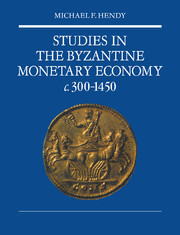Book contents
- Frontmatter
- Contents
- List of plates
- List of maps
- List of tables
- Abbreviations
- Preface and acknowledgements
- Introduction
- SECTION I ECONOMY AND SOCIETY
- SECTION II FINANCE
- 3 The budget
- 4 The limiting factors
- SECTION III COINAGE (CIRCULATION)
- SECTION IV COINAGE (PRODUCTION)
- Preliminary observations, future directions
- Bibliographies
- Key to plates
- Indexes
- Plate section
4 - The limiting factors
Published online by Cambridge University Press: 05 November 2011
- Frontmatter
- Contents
- List of plates
- List of maps
- List of tables
- Abbreviations
- Preface and acknowledgements
- Introduction
- SECTION I ECONOMY AND SOCIETY
- SECTION II FINANCE
- 3 The budget
- 4 The limiting factors
- SECTION III COINAGE (CIRCULATION)
- SECTION IV COINAGE (PRODUCTION)
- Preliminary observations, future directions
- Bibliographies
- Key to plates
- Indexes
- Plate section
Summary
EXTRAORDINARY EXPENDITURE
Military expeditions
Extraordinary expenditure, particularly that on military expeditions, had always formed what might now seem a disproportionate strain on imperial finances, because of the inelasticity of the empire's principal sources of revenue and the conservative nature of its social structure which never permitted the development of a substantial capacity for, and a sophisticated system of, state credit.
The cost of the great and unsuccessful naval expedition undertaken by Leo I against the Vandals in 468 is relatively well documented. According to Candidus,1 the expedition cost the prefectural reserve 47,000 lb gold or 3,384,000 solidi, the comitival (i.e. that of the komēs tōn thēsaurōn or comes largitionum) 17,000 lb or 1,224,000 solidi, totalling 64,000 lb or 4,608,000 solidi, and in addition a further 700,000 lb silver or 2,722,160 solidi assuming a gold:silver ratio of 1:18, making a grand total of 7,330,160 solidi, part also being paid by the western emperor Anthemius. According to John Lydus,2 it cost 63,000 lb gold or 4,680,000 solidi, and 700,000 lb silver or 2,722,160 solidi assuming an identical gold:silver ratio, totalling 7,402,160 solidi. According to Priscus and Procopius it cost 1,300 kentenaria or 9,360,000 solidi.
Both the sums involved and the figures for shipping and manpower differ according to the source, but John Lydus – who had been on the strength of the officium of the prefecture of the East – was perhaps in the best position to know, and moreover the sum quoted by him virtually agrees with the detailed breakdown quoted by the earlier Candidus.
- Type
- Chapter
- Information
- Studies in the Byzantine Monetary Economy c.300–1450 , pp. 221 - 254Publisher: Cambridge University PressPrint publication year: 1985



